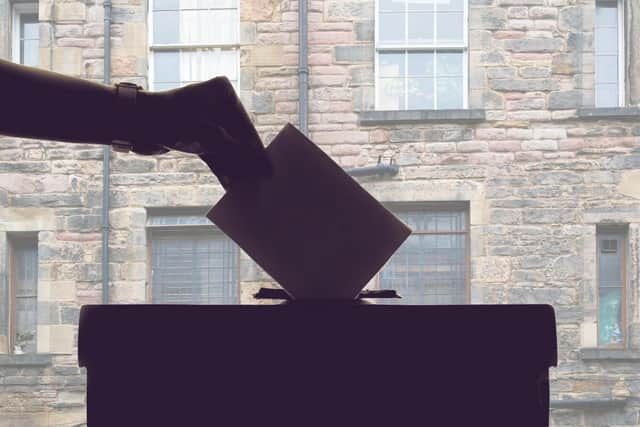Council Elections 2022: When are the Scottish Council Elections? How they work and who won at last local election
This spring will see council elections held across the UK to determine which new councillors will support and run local authorities.
Despite historically seeing a lower turnout and less intensity than general elections, local council elections provide a key chance for members of the public to effect tangible, on the ground change in their local community.
Advertisement
Hide AdAdvertisement
Hide AdAfter the previous Scottish council elections in 2017 saw Scottish Labour’s presence in local government decline further, the party led by Anas Sarwar will be hoping to regain lost ground as the SNP seem set to continue to their success at the ballot box.


But with a wide range of issues facing councils across Scotland and priorities differing from ward to ward, here’s what you need to know about the Scottish council elections, when they will take place in 2022 and how they work.
When are the Scottish Council Elections 2022?
The 2022 Council Elections in Scotland will be held on Thursday May 5.
Campaigning efforts are already underway across many local authorities in Scotland, with ‘purdah’ starting roughly three weeks before local elections and from April 14 this year.
The convention sees a three to six week pre-election period of ‘heightened sensitivity’ and increased care to respected by current councillors and elected representatives.
How do Scottish council elections work?
While Scottish Parliament elections see representatives elected to Holyrood on behalf of regions and constituencies – who are also elected to the UK Parliament in general elections – council elections concern local government and use a different electoral system.
There are 32 local councils, or authorities, in Scotland and each council is split further into smaller areas known as wards.
Local council elections therefore see citizens vote for councillors, with three or four elected per ward.
Advertisement
Hide AdAdvertisement
Hide AdThe electoral system used to elect local councillors is Single Transferable Vote (STV), which requires voters to rank candidates in order of preference with ‘1’ being the highest.
Councillors are elected when successful candidates achieve the most transferred votes, with votes reallocated to other candidates when no single candidate achieves an overall threshold of votes and the candidate with the lowest number of votes drops out, and has their votes reallocated to second choice candidates.
The process, viewed as more proportional than the Additional Members System used in Holyrood elections and First Past the Post system of UK general elections, then continues until all of a ward’s councillors are elected.
Who won the last local election in Scotland?
The last Scottish council elections were held in 2017 on Thursday May 4, with all 32 of Scotland’s local authorities in play.
2017’s local election results saw the SNP lose seven of their council seats and one local authority altogether, but the party also declared a historic victory in gaining Glasgow City Council from Scottish Labour.
It saw Scotland’s largest local authority change hands from Scottish Labour for the first time since 1980.
All in all, the SNP came out on top with 431 councillors in total elected in 2017, compared with the Scottish Conservatives’ 276 and 262 seats for Scottish Labour.
168 independent councillors were elected, while the Scottish Liberal Democrats and Scottish Greens achieved 67 and 19 councillors respectively.
Advertisement
Hide AdAdvertisement
Hide AdThe 2017 local elections marked the emergence of the Scottish Conservatives as the second largest party in local government in Scotland, echoing the party’s successes south of the border in England and Wales.
Turnout in Scottish council elections in 2017 was also up by 8%, with 41% turnout overall.
A message from the Editor:
Thank you for reading this article. We're more reliant on your support than ever as the shift in consumer habits brought about by coronavirus impacts our advertisers.
If you haven't already, please consider supporting our trusted, fact-checked journalism by taking out a digital subscription.
Comments
Want to join the conversation? Please or to comment on this article.

